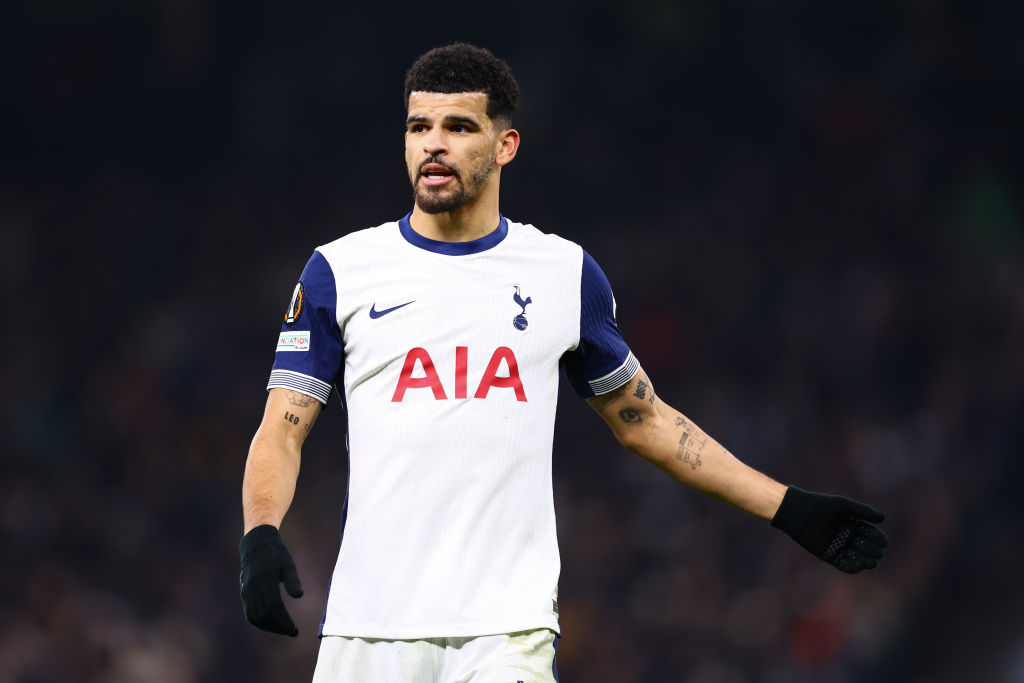Why next season’s Champions League could be Jose Mourinho’s undoing at Manchester United
Success in the Europa League means more high-stakes showdowns in 2017/18. Unfortunately, these are the kind of games that will expose Mourinho’s true colours, says Alex Hess
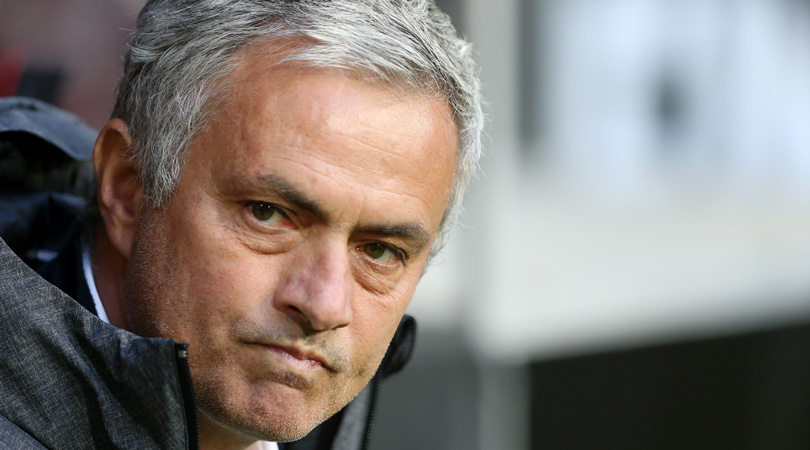
On BT Sport, the mask slipped when the first goal went in. As Paul Pogba’s shot hit a stray shin and looped towards the net, commentator Darren Fletcher’s first response wasn’t to make mention of the Europa League trophy, but to proclaim: “United are closer to Champions League qualification!”
This game’s real importance lay not in its glory but in its functionality
Even after the game, as Jose Mourinho demanded that his players hold up three fingers for the cameras – to indicate, count ’em, all the titles they’ve won this season – an unspoken truth remained. To many, this game’s real importance lay not in its glory but in its functionality.
While it’s silverware that might matter most to Mourinho – and rightly so – it’s the prestige and profile afforded by re-entry to Europe’s premier competition that his board, and many others at the club, will have been basking in as they tucked themselves in last night. Ostensibly, that achievement represents a significant step forward for both: certainly Mourinho sees himself as belonging among the continent’s footballing aristocracy, as do Manchester United as a whole.
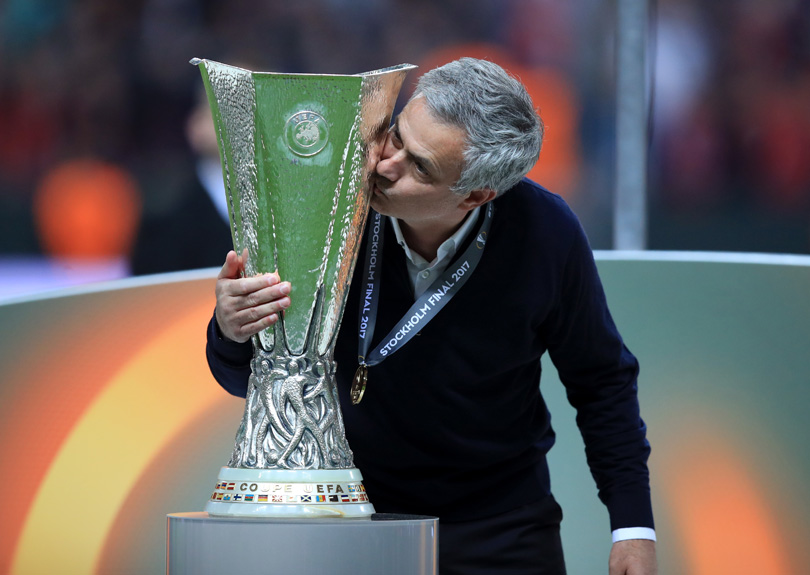
Just like their fellow giants a few miles down the M62, the significance of Champions League membership as a status symbol shouldn't be underestimated. Being seen as returning to football’s elite is the first step towards actually doing so – and in that sense Mourinho can count ‘stage one’ of his revival mission complete, and his own position consolidated.
But there’s another possibility, too: that competing in the Champions League could serve to harm Mourinho’s reputation, and damage his position as Alex Ferguson’s rightful successor.
Because at some point, the awkward discrepancy between United’s soft-focus mythology and the hard-edged reality of Mourinho’s own vision will likely become more than just background noise. It’s something Mourinho himself seems acutely aware of, too.
Poets and pragmatists
Get FourFourTwo Newsletter
The best features, fun and footballing quizzes, straight to your inbox every week.
His declaration in Stockholm that “poets do not win titles” was a nice line, but it betrayed the knowledge that he is being assessed on style as well as substance. And if the preceding 90 minutes were anything to go by, then next season’s steep increase in high-profile fixtures will bring with it an equally steep increase in the kind of dreary, plodding and militantly pragmatic football that is Mourinho’s big-game hallmark.
Wednesday's game showed that when the pressure’s on, Mourinho will always favour the sit-and-stifle blueprint
In December, Mourinho spoke of “the dominance, quality and beauty of our football … we are not a team that defends and waits for opponent’s mistake.” But to quote Tina Turner: “I can't believe what you say, because I see what you do.” Wednesday’s game showed that when the pressure’s on, Mourinho will always favour the sit-and-stifle blueprint. So he should; he does it better than anyone.
On Irish television, Graeme Souness delivered his own verdict on the evening’s aesthetics. “It’s agony watching it,” he said. “This is Manchester United and they’re playing lower-end-of-the-Championship football, launching it everywhere.”
If Souness was wrong about the standard of United’s football (as the result demonstrated, long-ball tactics are not the preserve of bad teams), he was a tad more accurate about its effect on the viewer.
It wasn’t the only time that Mourinho’s United have rejected Hollywood thrills in favour of the protracted ennui of a European arthouse film. In the Premier League, their 10 matches against the rest of the top six this season (i.e. fixtures we could reasonably class as ‘big games’) yielded a grand total of seven Manchester United goals.
This attacking paucity has been a creeping problem throughout the season – the club scored fewer league goals than Bournemouth, and a full 32 fewer than Tottenham. But, awkwardly for Mourinho, it’s most glaringly obvious in the games which also happen to draw the most viewers.
An image to live up to
We all know about United’s self-image – buccaneering, adventurous, pacey; Best, Giggs, Ronaldo – and we may like to have a chuckle at it, too. Yet as embellished as that mythology might be, it does have a basis in fact.
The first year of evidence suggests that the United Way is fundamentally incompatible with the Mourinho Way
The great United sides of the past did, largely speaking, play with brio and flair. But like any myth, more important than its veracity is the fact that it simply exists, and the first year of evidence suggests that the United Way is fundamentally incompatible with the Mourinho Way.
The counterargument here is that the club’s true philosophy comprises not style but results: it’s about winning, no more, no less. This would perhaps stand Mourinho on firmer ground (although perhaps not, when you consider that those 10 ‘big’ league games bore only two wins). Certainly there will be few United fans taking issue with the bleak spectacle that was served up against Ajax, replete with possession stats of 33%, when taken in conjunction with the final score.
In fact, you could argue that Thursday’s win was in keeping with the traditions of a club whose last European triumph came only after asphyxiating Barcelona over 180 minutes of tedium (in the 2007/08 Champions League semi-finals). They were led then by a great manager who increasingly approached crunch games with a mindset that valued caution and expediency above attacking revelry and swashbuckling wingers.
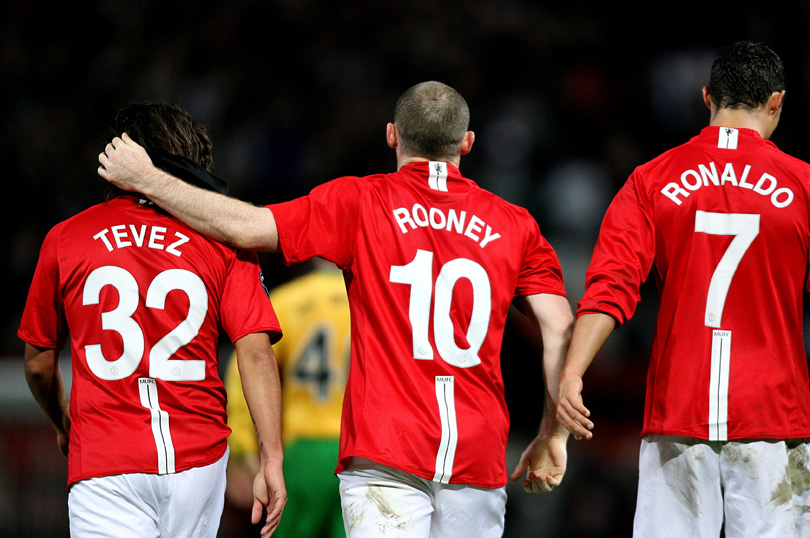
Yet the harsh paradox that Mourinho finds himself up against remains: the matches in which defensive tactics are most required are also the ones that his reputation will overwhelmingly be judged on.
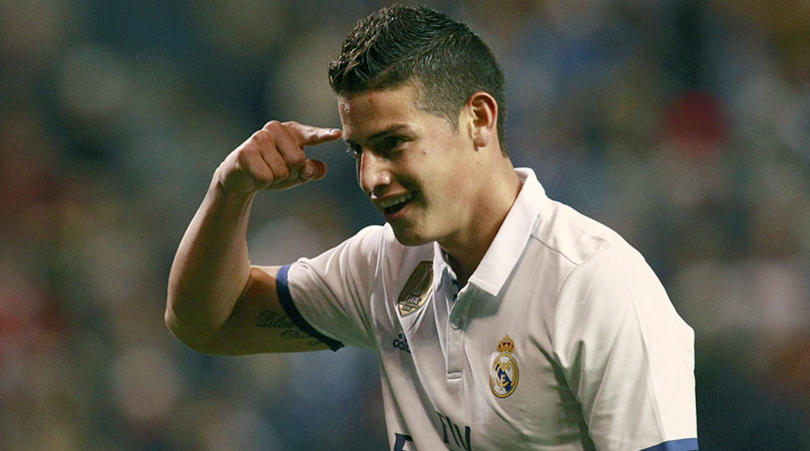
Why James Rodriguez to Manchester United just doesn't make enough sense
Year Zero: The making of Eric Cantona
Quiz! Name these 20 players by their famous goal celebrations
Of course, there’s the possibility that this season’s low-level mundanity was simply a means to an end – a way of hauling a partly-inherited squad over the line. Perhaps some stellar additions and a few hard hours on the training ground will lead to United edging towards a more expansive playing style; the sort of football that Mourinho’s Chelsea and Real Madrid teams were sometimes capable of – and that this team even hinted at themselves during the winter and early spring.
Then again, perhaps a side built more firmly in Mourinho’s image will bring less joy rather than more. It should be seen as ominous that not a single flair player in the squad – aside from the brilliant but increasingly immobile Zlatan Ibrahimovic – has had an excellent season by their own standards, while some have regressed worryingly.
For now, though, a club that was always too big to truly fail have concluded a stuttering season with a mark of tangible progress. United have reached the first milepost on what will surely be a steady march back to the top. Whether Mourinho will be the man to return them to the very pinnacle, however, remains to be seen.
